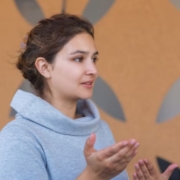Most Common Vocabularies and Terminologies of OET
Are you planning to take the OET exam? If so, it’s crucial that you have a solid understanding of the most common vocabularies and terminologies proficiency in a healthcare context, which means that having a robust medical vocabulary is essential for success. In this blog post, we’ll explore some of the most frequently encountered words and phrases in the OET course in Chandigarh so that you can boost your chances of achieving excellent results!
Also Read: The Benefits of Remote Nursing Jobs
OET course in Chandigarh: OET Writing
One of the most important aspects of the OET is writing. In order to score well in this section, it is important to have a strong understanding of the common vocabulary and terminologies used. You will need to know the following terms:
- Task response: This refers to how well you answer the question that has been asked. It is important to read the question carefully and make sure that your answer covers all the points that have been asked.
- Cohesion and coherence: This refers to how well your essay flows and makes sense. It is important to use linking words and phrases correctly so that your essay is easy to follow.
- Lexical resource: This refers to your use of vocabulary. It is important to use a range of different words and phrases correctly so that your essay sounds natural and fluent.
- Grammatical range and accuracy: This refers to how well you use grammar in your essay. It is important to use a variety of different sentence structures correctly so that your essay sounds accurate and error-free.
OET Speaking
The OET course in Chandigarh Speaking section is divided into four sub-sections: Introducing Yourself, Giving Information, Responding to Questions, and Discussion. Each subsection has a different focus and requires different language skills.
- Introducing Yourself: In this section, you will need to introduce yourself to the examiner. You will be asked to provide your name, where you are from, and what your occupation is. You will also be asked to describe your current situation, including why you are taking the OET.
- Giving Information: In this section, you will need to provide information about a topic. The examiner will give you a prompt and you will have one minute to prepare before speaking for up to two minutes.
- Responding to Questions: In this section, the examiner will ask you questions about a topic. Before speaking for two minutes, you will have one minute to prepare.
- Discussion: In this section, you and the examiner will discuss a topic. You will have one minute to prepare before speaking for up to four minutes.
OET Reading
One of the skills you will be tested on in the OET reading sub-test is your ability to understand and interpret specific vocabulary and terminology. In order to help you prepare for this, we have compiled a list of some of the most common terms and their definitions.
- Academic: relating to education or academia
- Administration: the management of an organization or system
- Alternative medicine: any medical treatment that is not considered conventional
- Biochemistry: the chemical processes that occur within living organisms
- Biology: the study of living organisms
- Cardiology: the study of the heart and its diseases
- Chiropractic: a branch of alternative medicine that focuses on the diagnosis and treatment of mechanical disorders of the musculoskeletal system, particularly the spine
- Clinical: relating to or involving patients in a hospital or medical setting
- Clinical trial: a research study involving human participants, which is used to test new treatments or interventions
- Cosmetic surgery: surgery that is performed for purely aesthetic reasons, rather than to improve function or address an underlying medical condition
- Diagnosis: identifying a disease or condition based on its symptoms
- Dietetics: the science of planning and supervising meals, especially for those with special dietary needs
- Drug therapy/medication: treatment of a disease or condition using drugs
OET Listening
The OET course in Chandigarh Listening test is designed to assess your ability to listen to and understand, a range of spoken materials from a variety of sources. The materials include lectures, talks, interviews, and conversations. The test is divided into four parts, each with a different task type.
Part A: Short extracts
In this part of the test, you will hear short extracts from a range of situations, such as work meetings and social exchanges. You will be asked to identify specific information and complete short notes based on what you hear.
Part B: Longer monologues
These could be a talk on an educational topic or a work-related presentation. For each monologue, you will be asked six multiple-choice questions. You will need to select the correct answer for each question based on what you hear.
Part C: Conversations
In this part of the test, you will hear two conversations between two or more people. The conversations may take place in different settings, such as at work or in social situations. For each conversation, you will be asked six multiple-choice questions. You will need to select the correct answer for each question based on what you hear.
Conclusion
The OET is a valuable exam for anyone seeking professional certification. Knowing the most common vocabularies and terminologies of the OET can help test takers better understand, prepare, and succeed on this challenging exam. With these helpful tips in mind, we hope that you now have a better sense of how to approach the vocabulary section of your upcoming OET exam. Good luck!









Leave a Reply
Want to join the discussion?Feel free to contribute!